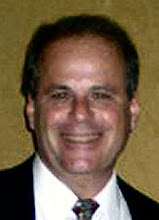I hope those of you who regulary read this blog have already visited the recently announced Museum's exhibition "Jews in Small Towns: Legends and Legacies." The exhibition may be found at www.museumoffamilyhistory.com/lia-jist.htm .
I chose one story from each U.S. state and Canadian province represented in the Howard V. Epstein book of the same name as the exhibition. There are over one hundred stories from the Epstein book that "remain on the cutting room floor," so to speak.
One of them that didn't make the cut came from Gladys Smith of Grand Forks, North Dakota. I thought I would present you with some excerpts from her story here, as you won't find this story within the exhibition, and what she says is interesting.
.............................................................................................
"My early memories of Grand Forks and being Jewish there are happy ones. We had a synagogue in town that served the forty families that lived there, plus all the Jews from the surrounding small towns too. We were, for the most part, Orthodox, and the shul was always packed on all the holidays. We had a full-time rabbi and a cantor for the High Holy Days, Sunday school for learning Biblical history, and Cheder during the week for Hebrew lessons, and Bar Mitzvah preparations for the boys.
My mother kept a kosher home, and Yiddish was spoken at home and at both grandparents' homes. Pesach was always spent in Minneapolis (it was an overnight train ride with free train passes, thanks to my dad's job) and there was always a feeling of rightness to everything. There was a rightness to observing Shabbos, to lighting the candles, to opening the door for Elijah on Passover, and to reading the Daily Forward in Yiddish to my grandfather.
When I started school, which came at the same time as World War II and the Holocaust, life no longer felt right. From then on, my family, along with my world, fell apart. Being called a 'Christ killer' and a 'dirty Jew' were things that no one had ever taught me to deal with. It was as if Hitler's madness had reached out to touch all of us.
My parents never taught us how to deal with the anti-Semitism that was so prevalent in that part of the country in those years: the 'No Jews or Dogs' signs in motel windows, being beat up by non-Jewish children, al the things that made us feel like so much less than we really were....
As World War II progressed, and it became evident that whatever family had been left in Russia and Poland no longer existed, my grandparents lost heart. There was a great deal of sickness in the family, and life, as I had known it when I was younger, became nonexistent...
When I think back on the friends I had during my growing up years, I realize that whoever befriended me probably had no idea of what a Jew was. I can't recall any conversations about religion, Jesus, or even the Holocaust. I don't recall any discussions of the Holocaust in any school class. It was always as though what was happening in the world could never touch us and, therefore, why even talk about it. Everyone was very patriotic and danced in the streets when the war ended, but the idea of people like us being starved, beaten, demeaned, gassed, and put into furnaces was just beyond anyone's--especially a child's--conception.
My parents declined to answer whatever questions I may have had, and it wasn't until I started to haunt the library that I began to put the pieces of this puzzle together. If anything, I can recall a feeling of, 'Keep your mouth shut, hold your breath, and pray it doesn't touch you...'
...Growing up Jewish in a small town left scars that I now realize can never heal. I'll always look over my shoulder and wonder if I'll wake up some morning with a swastika painted on my front door."
................................................................................................
Interesting food for thought, isn't it?
In the future, more excerpts from this book may be included within this blog.
Wednesday, September 9, 2009
Jewish Life in a Small North Dakota Town, circa 1940s
Labels:
anti-Semitism,
holidays,
jewish life,
north dakota,
small towns
Subscribe to:
Post Comments (Atom)




An interesting book. I obtained it through interlibrary loan last year. One signficant deficiency, however, is it lacks an index, so many of the family names that are part of the stories remain relatively inaccessible.
ReplyDeleteTim Baker
Bellingham WA